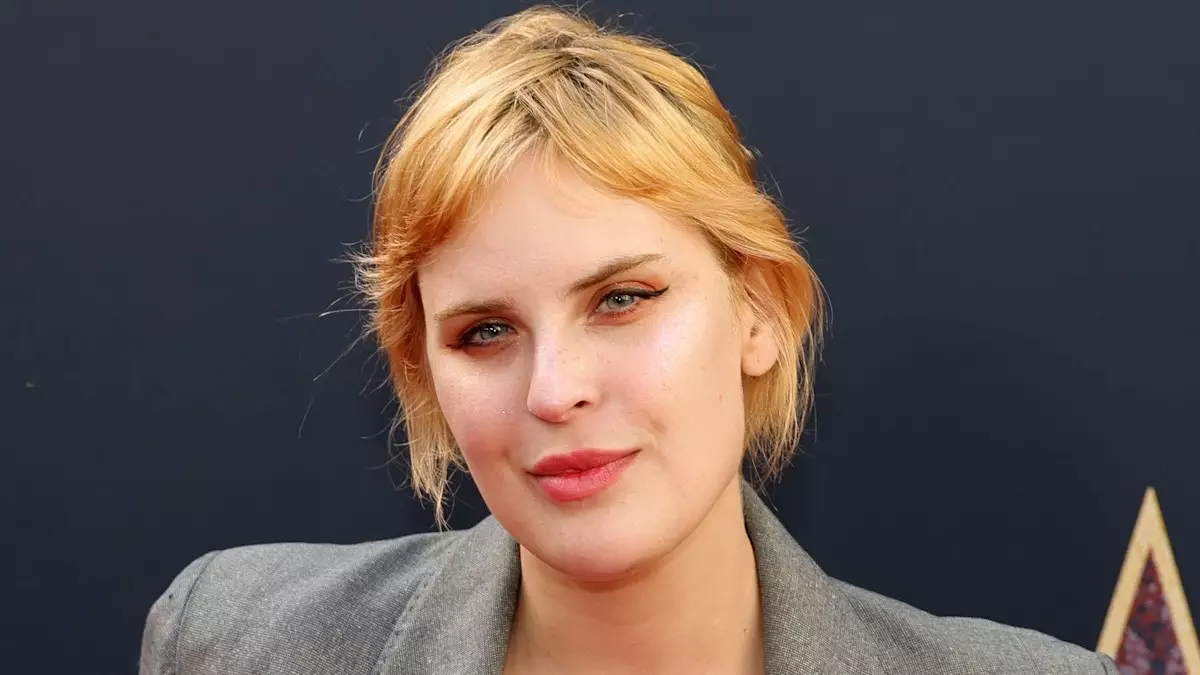Tallulah Willis, the youngest daughter of Hollywood icons Bruce Willis and Demi Moore, has recently opened up about her experience with autism, shedding light on the profound impact of family support on her mental health. Following her diagnosis, Tallulah expressed gratitude toward her sisters, Rumer and Scout, stating that their encouragement has allowed her to embrace her true self. In conversations with HELLO!, she highlighted how her family’s understanding enabled her to express her needs in situations that may have previously felt overwhelming. This admission reveals a crucial aspect of her journey: the difficulty many individuals with neurodiverse conditions face in asking for help, often stemming from societal fears of being perceived as demanding or “high maintenance.”
Tallulah’s candidness about her struggles underscores the importance of support systems. The realization that she could communicate her needs has fostered a newfound sense of empowerment, allowing her to navigate often challenging social situations with a greater sense of agency. As she prepares for the Autism Speaks gala, an event recognizing advocacy and awareness, Tallulah’s story becomes even more significant, not just for her but for many who grapple quietly with their identities.
Revisiting her childhood, Tallulah shared a poignant video capturing a moment where she found solace in her father’s embrace, employing a behavior known as “stimming” as a coping mechanism. Her reflection on this memory illuminates how she once viewed her actions as peculiar, but with context and understanding, now recognizes them as healthy expressions of her autistic identity. The video serves not only as a personal testament but also as a broader commentary on the experiences of many autistic individuals who often wrestle with self-acceptance.
She expressed the vital realization that the behaviors she once dismissed as odd were actually her attempts to regulate overwhelming emotions. This insight highlights an often overlooked aspect of autism, particularly in women—how societal pressures can mask genuine needs and expressions, leading to years of internal conflict and misunderstanding. It’s a profound awakening that many can relate to, showcasing the necessity of self-advocacy and the power of acknowledging one’s true experiences.
Tallulah’s diagnosis came at a time when she had already grappled with feelings of incongruence and discomfort. Her journey toward understanding her neurodiversity is not unique; research indicates that autism often goes undiagnosed in women until adulthood. Historical bias in medical research towards male subjects has contributed to misconceptions that autism predominantly affects men, leaving many women seeking answers for years. Tallulah’s experience reflects a growing awareness that the autism spectrum is diverse and multifaceted, encompassing a range of experiences that differ from the traditional narrative.
Her reflections on receiving the diagnosis expose the vulnerability often felt by those navigating the boundaries of neurodiversity. The fear of invalidation, the dread of self-discovery—these emotions intertwine in a complex dance that many face when diagnosed later in life. Yet, as Tallulah discovered, receiving a diagnosis can transform how one perceives themselves, turning years of self-judgment into opportunities for greater self-compassion.
Understanding autism has empowered Tallulah to assert her needs with increased confidence. She shared how this newfound clarity has changed her approach to daily life, emphasizing the importance of energy management. For instance, in preparation for the Autism Speaks gala, she consciously opted for low-impact activities leading up to the event to prevent emotional exhaustion. This thoughtful preparation exemplifies the critical transition from feeling overwhelmed to mastering personal boundaries.
Tallulah’s story illuminates how self-advocacy is essential in navigating a world often unkind to those with unconventional needs. The ongoing journey of self-acceptance she now shares provides hope and encouragement for others who struggle with similar challenges. By prioritizing her emotional well-being and taking steps to articulate her needs, Tallulah highlights a path toward empowerment for many who walk a similar road.
Ultimately, Tallulah Willis’s journey symbolizes a transformative narrative of love, acceptance, and the courage to be authentic. By embracing her identity as a person on the autism spectrum, she has opened a dialogue that many might find difficult but necessary. Her message transcends personal boundaries, extending its reach to all who feel marginalized or misunderstood.
As she prepares to be honored at the Autism Speaks gala, it becomes clear that her journey is much more than a personal triumph—it serves as a beacon for others. By sharing her story with courage, Tallulah not only illuminates her path but also paves the way for greater awareness and acceptance on a broader scale. In a world yearning for understanding, her voice rings out as an invitation for compassion, connection, and the celebration of our individual journeys.


Leave a Reply